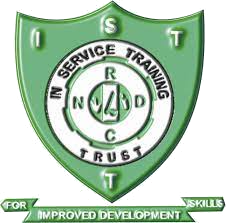
About In Service Training Trust.
ISTT established in 1993 is an education, training, and consulting organisation located in Lusaka, Zambia. ISTT has trained over 8,000 individuals since the year 2000. The ISTT training facilities have been able to host over 20,000 individuals from 2000 to today. ISTT provides market driven in-service training programme to support the agricultural, environmental, socio- economic and agro-industry sectors in Zambia. ISTT is registered and accredited under the Technical Education, Vocational and Entrepreneurship Training Authority (TEVETA as a grade one training institution).
ISTT facilitates strategic plans, board orientation and development, or- ganisational policies and procedures. Facilitation Approach Briefly the facilitation approach covers the following key areas: 1. Inception meeting and report 2. Develop facilitation plan 3. Conduct facilitation workshop 4. Documentation and presentation of workshop
We are
- Are self-directed
- Bring a lifetime of knowledge and experience to training
- Are goal-oriented
- Want training to be relevant and task-oriented
- Learn when they are motivated to learn
- Like to be and feel respected
Strategic Direction
Vision The Trust works towards ensuring that: ‘Communities are creating wealth and determining their own development in a sustainable manner’. Mission The mission of the Trust is to: ‘To provide quality capacity building programmes to its clientele engaged in sustainable development, through the application of innovative and participatory lifelong learning approaches’. Core-Values The vision and mission reflect the core values of the Trust, which are: 1. Teamwork – The Trust is committed to develop and manage team spirit among staff in order to promote high standards of work ethics for enhanced service delivery to clients. 2. Customer satisfaction - The Trust demonstrates its concern for customer satisfaction through a continued consultation and feedback and improvement of service delivery. 3. Excellence – The Trust pledges to deliver high quality service in a timely, effective and efficient manner. 4. Professional/personal integrity -Our clients are guaranteed courtesy, respect, fairness and sensitivity and integrity. 5. Innovation – The ISTT is committed to being proactive and innovative in order to meet the challenges offered by the future. 6. Accountability -The Trust is committed to conduct business in the most accountable and transparent manner. 7. Social Responsibility - We are committed to support the under privileged through the provision of affordable services. 8. Healthy Society – The Trust promotes a health society through the development of an HIV/AIDS management policy at the place of work and integration of HIV/AIDS in its training programmes. 9. Gender Equity - The ISTT is an equal opportunity employer and believes in the participation of both men and women in development.
ISTT Concept
The concept of ISTT was born in early 1990s out of the policy by the GRZ through Ministry of Agriculture Food and Fisheries (MAFF) that it serves as a self sustaining training institution serving the agricultural and other economic sectors of the country and initially operated as a Revolving Fund of the MAFF until 1996 when it was registered as Trust. The In-Service Training Trust (ISTT) then called In-Service Training Centre was developed from the Canadian International Development Agency (CIDA) funded Maize and Fertiliser Storage Training Project. At the end of the project in 1993, it was decided by the government republic of Zambia (GRZ) and CIDA that an independent training institution is set up to continue undertaking the training in the field and other market driven programmes. ISTT through support from CIDA constructed two units medium cost and one unit high cost residential houses at the NRDC campus. It also erected three roomed classroom block using its own generated funds. It repaired and refurbished the rooms at Kalungwishi and Lukanga hostels of the residence, made renovations and additions including a modern fully equipped kitchen, lounge and reaction area and has managed to keep the facilities in high standard of maintenance. In order to achieve the above objectives, ISTT has been conducting in-service training for the public and private sectors. ISTT has expanded and now runs programmes in which participants from other SADC countries.
